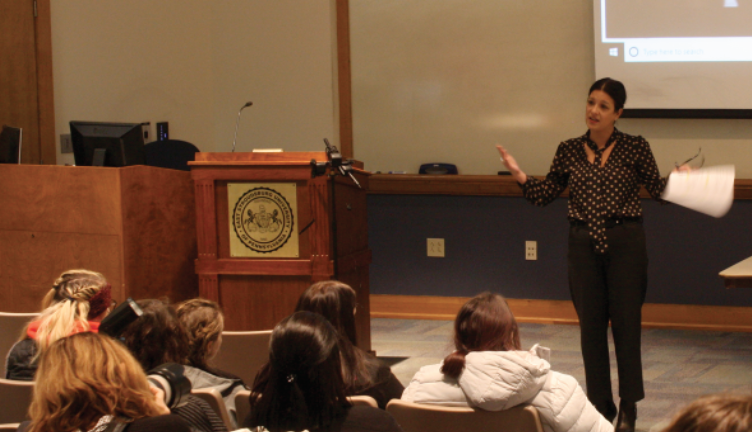
Bailey Holbert
Contributing Writer
Professor of Secondary Education, Stephanie McCall, gave a presentation on the contrasts of two educational systems at the Provost Colloquium event on Wednesday, Nov. 15.
Dr. McCall intends on using her research from her fieldwork in Liberia, a country that suffers from the effects of the region’s various crisis, including civil wars, to support her upcoming writing, “Girls, Single-sex Schooling, and Postfeminist Fantasies.” Her study contains detailed observations of girls in both private and public single-sex schools.
The event brought many students and others who were filled with excitement to hear of the professor’s new study, completely filling the seats in Beers Lecture Hall that night.
The title of her presentation was “Affective Entanglements With Gender and Curriculum in the Education of Girls in Liberia”, relative to what she wants to include in her writing.
It was her first time taking her research abroad to a different country, an entirely new way of applying her methods head-on in meeting face-to-face with a set of diverse people who can relate to her analysis. She was eager for something different.
During her presentation, she discussed the importance of schools creating a curriculum. A curriculum, in this case, which has the potential of shaping that school’s learning environment. As one would view a curriculum by definition, it is a layout of how a class may teach its students, but McCall gave insight on how it can mean so much more.
“Curriculum is about hope”, she said at one point during her presentation. “I see a curriculum of girls learning to be girls..learning to be smart and sassy and strong…being taught femininity and masculinity”.
Through her observations in Liberia, she found that the schools were in need of upholding a curriculum that can ensure the safety of those girls while teaching them to be true to themselves. The girls depicted on her powerpoint slides from her observations were young, happy and bright in learning during their classes.
However, not all the classes were true in showing a cheerful face. Some of the writings depicted on the walls of the classroom showed discomfort with sexual harassment involved.
“Gender is important because when we design schools, we design our hopes for those children…but those hopes may come from one person…based on assumptions about gender”, said McCall.
There is a call to action for faculty who organize such curriculums to not only base on their own hope for a system of order but a hope that many young girls, such as the ones McCall got to meet during her trip, are able to individually build their own future on.
The intentions of her research were to show the differences rather than importance between an elite all-girls school and a public school, mostly full of girls of color. Not only does gender affect a child’s learning experience, but also the clothes they must wear based on their culture, their social class, as well as ethnicity.
“She tries to be as respectful and honorable as she can be while in the country and when speaking about the country. It’s not something many people would do if they were doing educational research – it’s not something I think many people think about,” said Cheyanne Werkheiser, an assistant of McCall’s teaching.
McCall’s interest in curriculum and girls’ education has taken her into going beyond the form of analyzing what is presented before her and understanding the children of Liberia who face the daily pressure of keeping up with their school’s standards. It encouraged her to teach girls about empowerment among women and taking their hopes and dreams into their own hands.
More on McCall’s research and writing with the study of curriculum and other topics can be found on her website, quantum.esu.edu/faculty/smccall.
Email Bailey at:
bholbert@live.esu.edu

